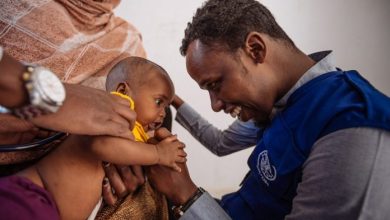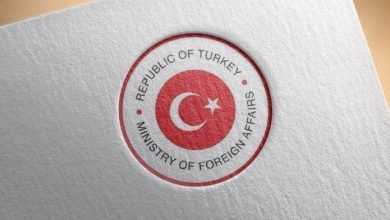Danish Immigration Minister: 1,000 Somali’s have lost their residence permit and will be sent home
Nearly 1,000 Somalis have lost their Danish residence permits since the Scandinavian country's Immigration Agency began to review them in early 2017.
Nearly 1,000 Somalis have lost their Danish residence permits since the Scandinavian country’s Immigration Agency began to review them in early 2017.
The decisions were prompted by the Immigration Service’s announcement that there is now certain in parts of Somalia that refugees and their families can safely travel home to.
The decision to revoke residence permits was backed by immigration minister Inger Støjberg.
“If you no longer need our protection and your life and health are no longer at risk in your home country, and specifically in Somalia, you must, of course, return home and rebuild the country from which you came from,” said the minister.
These recent changes to Danish immigration law were made possible by an amendment to their Immigration Act in 2015. The changes were widely seen as a knee-jerk reaction to the Syrian refugee crisis.
In late 2016, the Immigration Service announced that it would use the new amendment to review about 1,200 residence permits given to Somalis because of “general conditions” in parts of Somalia.
It was decided that “the general conditions have now changed so much in these parts of Somalia that there is no longer a basis for asylum, simply because they come from there”, according to the Board.
Inger Støjberg agrees with the board’s assessment despite weekly reports of terrorist attacks.
“We are looking at each case and we know a lot about Somalia. It is always the case that “fact-finding” is constantly being carried out, that is, simply looking at the conditions. I fully trust the authorities’ decision, says the Minister for Immigration and Integration.
Only 18 percent of the complaints get approved
The Refugee Board has often agreed with the Immigration Agency’s decisions.
Of the cases it has dealt with so far, the panel has confirmed the decision in 42 percent of the cases. In another 40 percent, it has sent the cases back to the Immigration Service, mostly because new information has emerged.
Only in 18 per cent of cases, the Refugee Board has given the complainant the right to asylum in Denmark.
When the Refugee Board confirms the decision of the Immigration Service, the person has 30 days to leave and, if that does not happen, he is transferred to a so-called exit centre.
If the former refugee decides to travel, there is access to repatriation support of almost NOK 140,000 ($16,056 USD) per adult and NOK 42,000 ($4,817 USD) per child.
However, despite the cash incentive to return home, there were only 42 resident Somalis who had been repatriating in Somalia last year and 32 so far this year.
Danish Refugee Aid: Somalia is still a very dangerous place
The Danish Refugee Council, which has been active in Somalia for many years, as testified that the poor security situation weighs heavily on returning Somalis.
“It is a clear sign that people do not feel safe returning home and that they do not see a future for themselves and their children and family in Somalia. That they do not feel safe if they return home, because many more would accept the offer, says Secretary General Christian Friis Bach.
The organization has co-authored several of the Immigration Agency’s reports on the country, and Christian Friis Bach was in Somalia as recently as late November.
He believes that the Immigration Agency’s review and involvement of the many residence permits are premature. Because although the situation in parts of the country has improved a bit, it’s not time to return home yet.
“There are places in Somalia, which you can return to if you have family roots and if there is a place where it is pretty safe, he says.
– But there are many other places where it is very uncertain to return. Especially when you come as a stranger and not affiliated, and may have been in Denmark for many years. So Somalia is a very dangerous place to be and therefore we do not recommend sending Somali back now, says the Danish Refugee Council’s, Secretary General.
Immigration and Integration Minister Inger Støjberg (V), however, maintains that the opinion of the Immigration Service is the right one.
– I think the security is good enough. But I do not know why Somalis, nevertheless, would rather stay in Denmark. I can not decide. But if the authorities have gone through the matter, and that’s what they’re saying, and I’m sure it’s safe to go home, I’m sure of course, “says Inger Støjberg.
“Then I think you have to accept the money and go home to start a new life, ” she says.
According to Politiken, Denmark has made an oral agreement with Somalia to accept repatriated Somalis in return for the help of building a police force.
There are an estimated 12,000 immigrants from Somalia in Denmark. They have fled from the unstable situation in the war-torn African country or have been family reunited with Somali refugees.





